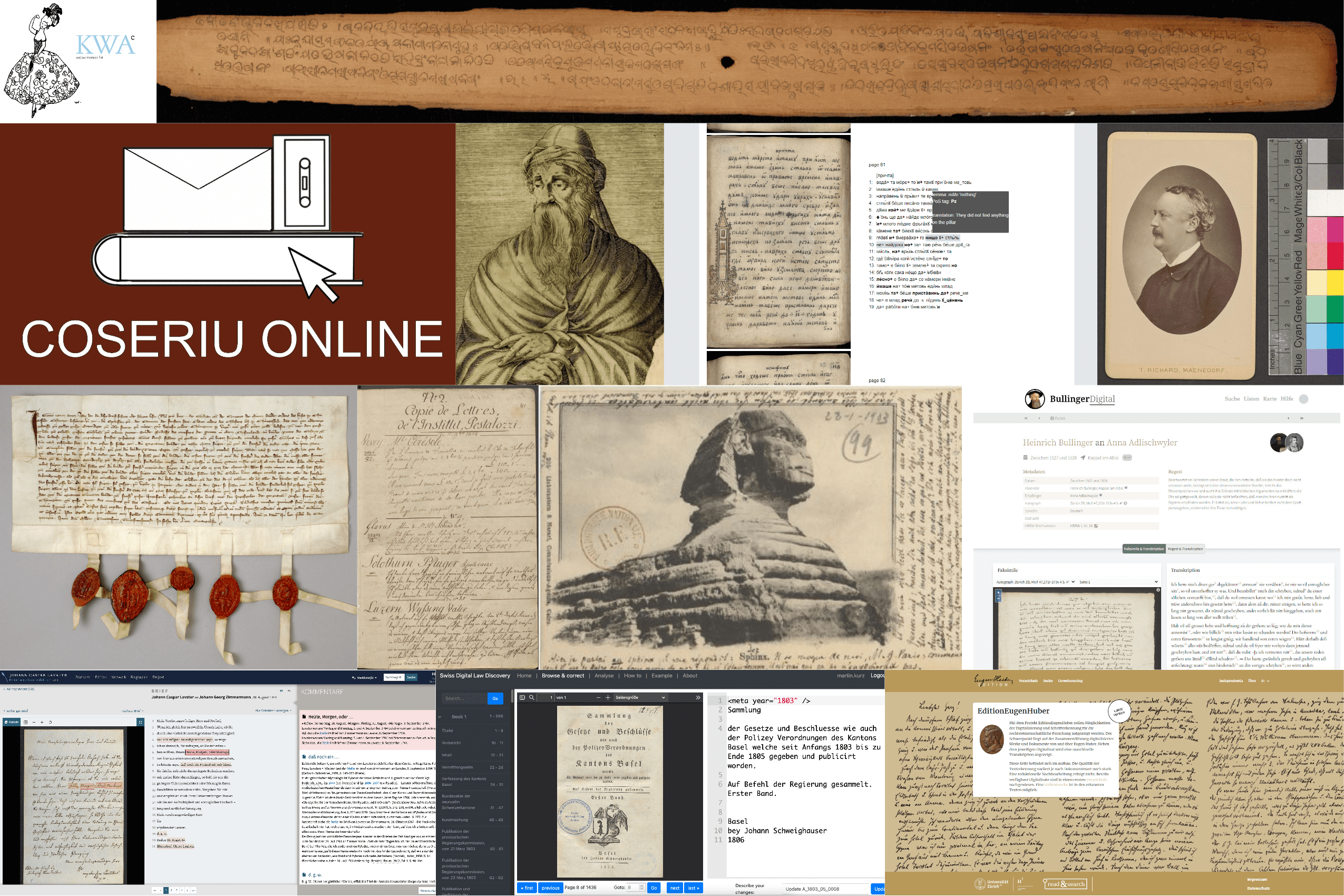Prototypical Workflows for Digital Editions (Proto4DigEd)
About this Project
Digital scholarly editions make historical documents accessible online for researchers and the general public. Using computer-aided processes and tools, historical sources are critically edited and encoded as structured data. A particularly critical moment from an ORD perspective concerns the conception phase and respective workflows of projects, as it is here decided whether or not the foundations for later reusability and permanence are laid. Using the example of the correspondence of French philologist Gaston Paris (1839-1903) and one of the leading French philologists of the second half of the 19th century, the project explores possibilities for prototypical workflows and documents these in an openly accessible manual.
Scientific Summary
As developments in Switzerland have shown in recent years, digital editions open up exciting possibilities for the findability, accessibility, interoperability, and searchability of cultural information. However, in the promotion of large-scale digital projects, the risks also became apparent: While many resources were invested in the development of elaborate web frontends, the implementation of ORD principles fell short of expectations, especially regarding the reusability of the data and the durability of the technically demanding frontends. Therefore, the focus of Proto4DigEd is not the development of new technical solutions, but the development of prototype workflows using existing standard tools (Transkribus and TEI Publisher). The central question is how these tools can be used sensibly to ensure the (long-term) accessibility and usability of the edition data. Together with important stakeholders and using an exemplary corpus of sources, reusable workflows are tested, discussed and documented. Proto4DigEd will provide the basis for a large-scale Swiss-French project under the direction of Prof. Dr. Ursula Bähler that will bring together, make usable and partially edit the entire archive holdings of Gaston Paris (around 1,800 correspondence partners and 27,000 pages), which are currently widely dispersed.
Challenges and Goals
One major challenge is to keep focusing on prototypical aspects and questions, despite the specific nature of the project in question. Another challenge concerns the long-term sustainability of the output created and defining responsibilities for future knowledge-sharing.
The aim is therefore to discuss and review the findings with the ORD community on digital editions in Switzerland. This process is intended to promote a common understanding of prototypical issues with regard to ORD practices in the field of digital scholarly editing in Switzerland.
Results and Output
- Manual: The most important output of the project is a manual that documents prototypical workflows when using the standard tools Transkribus and TEI Publisher.
Manual Workflows for Digital Editions - Beta version (in German) - Presentation at the DARIAH Annual Event in Lissabon, 18-21 June 2024. [Poster]
- Workshops:
- 10 April 2024: A first workshop focused on workflows relating to the use of Transkribus. Prototypical workflows were crystallized, particularly in connection with the export of Transkribus data and the import of data into TEI Publisher.
- 11 September 2024: Important results can also be expected from the second community workshop, which will focus on workflows for the long-term preservation of TEI Publisher editions in the national repository DaSCH. Workshop on "Langzeitarchivierung von TEI-XML Editionen: Prototypische Beispiele und Workflows"
Impact on Open Science Practices
The handbook creates a basis on which ORD practices in the edition community can be further developed. Another key factor for the impact of the project will be whether it succeeds in taking a step forward in the development of prototype workflows for sharing and archiving digital editions. A further important impact lies in the establishment of a network between various important stakeholders with the Center for Digital Editions as an important hub at UZH. Finally, new ways of knowledge transfer and exchange were successfully tested with the two workshops and can be carried into the future by the Center for Digital Editions.

